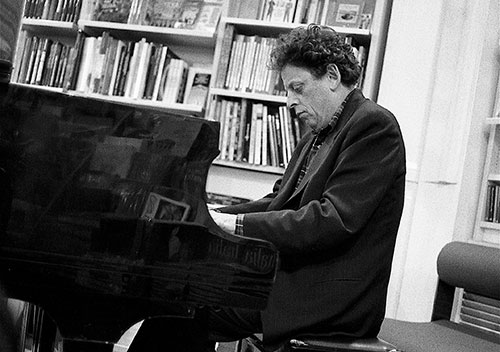One night in May 2011, in a church in Brighton, a local record label hosted an evening of ‘post-classical’ music. Playing live were German pianists Max Richter and Hauschka, American musician Dustin O’Halloran, and a documentary was screened about England’s north-eastern mining communities, scored by Icelandic composer Jóhann Jóhannsson (pictured above). At the end of the night, the congregation rose from the hard pews and buzzed around the merchandise stall, eager to buy CDs, posters, and get autographs from the performers.
Fast-forward a few years, and Jóhannsson is a world-renowned Oscar-nominated artist lined up to score the Blade Runner sequel; Max Richter has topped the iTunes charts with his version of Vivaldi’s Four Seasons; and post-classical music regularly features across film, TV and radio, and has had its own night at the Proms.
It’s almost like a punk moment for classical music
So what exactly is it? Dave Howell, the boss of numerically-named record label 130701 – which hosted that evening in Brighton – can explain: “It’s the use of classical instrumentation in adventurous, non-traditional ways, often including electronic elements,” he says. “A lot of the artists don’t have classical training. Jóhann and Dustin started out in indie-rock bands.
“And there’s a generation of younger classical musicians who grew up listening to a wide range of genres,” he adds. “It’s a meeting point of people coming from different angles, and it’s almost like a punk moment for classical music. It’s exciting.”
A diverse roster of influences has certainly been key for Jóhann Jóhannsson, and borne out in a varied, prolific career. His work includes an album scored for brass ensemble and electronic drones, a suite for string orchestra and an old IBM computer, and his Golden Globe-winning soundtrack to The Theory of Everything.
“Growing up I liked classical music, the Baroque and Romantic periods especially,” Jóhannsson says. “But I also listened to bands like The Jesus and Mary Chain, My Blood Valentine, and lots of ’90s electronic music. Obviously Minimalism was also a great influence, people like Michael Nyman, Philip Glass [below]… I’m interested in anything that fills me with wonder and delight.”










